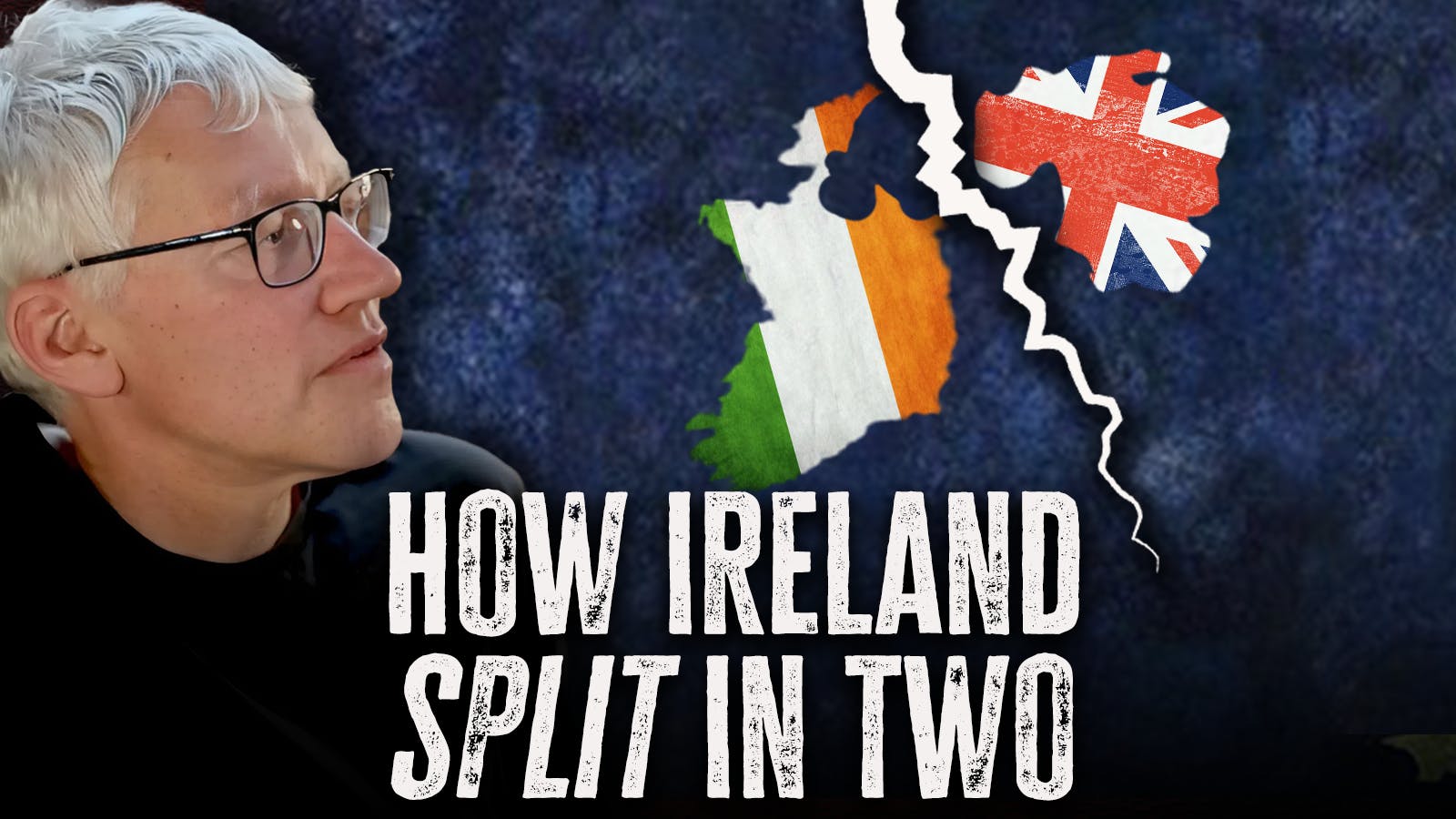The Deal That Split Ireland
The Main Idea in a Nutshell
- In 1921, the British and Irish signed a peace treaty to end their war, but the deal was so controversial that it immediately split Ireland and started a new, brutal civil war between the Irish themselves.
The Key Takeaways
- An Unfair Match: The British negotiating team was full of powerful, experienced politicians (like Winston Churchill and Prime Minister David Lloyd George) who knew exactly what they wanted, while the Irish team was inexperienced, divided, and had unclear instructions.
- The Welsh Wizard: The British Prime Minister, David Lloyd George, was a master manipulator who used threats, flattery, and clever tricks to outsmart the Irish and pressure them into signing a deal they weren't totally happy with.
- The Deal-Breaker: The final treaty said Ireland could be a "Dominion" (like Canada) but would still be part of the British Empire and have to swear an oath of loyalty to the King, which was a huge insult to many Irish Republicans who had fought for a completely independent country.
A Tragic Twist: The leader of the Irish independence movement, Éamon de Valera, refused to go to the talks himself, and when his team came back with the signed treaty, he rejected it, which split the movement and the country in two.
Fun Facts & Key Numbers:
- Fact: The final vote in the Irish parliament (the Dáil) to approve the treaty was incredibly close, passing by only 64 votes to 57.
- Fact: The British weren't losing the war militarily. In the first half of 1921, they lost fewer soldiers in Ireland than they often lost in a single quiet day during World War I. The war had become a political embarrassment they just wanted to end.
Important Quotes, Explained
Quote: "> I have standing ready a special train and a destroyer to take one of these letters to Northern Ireland's Prime Minister... Which of the two letters am I to send? I want your answer by 10:00 tonight."
- What it Means: The British Prime Minister, Lloyd George, put two letters on the table. One said the Irish had agreed to peace. The other said the talks had failed, which he said meant "war within three days." He was giving them an ultimatum: sign this deal right now, or the war starts again immediately.
- Why it Matters: This was the ultimate power move. Lloyd George used theatrical pressure and a dramatic deadline to force the Irish negotiators into a corner. It left them no time to check with their leader back in Dublin and showed just how ruthless he was.
Quote: "> [The treaty] doesn't give us everything we want, but it gives us the freedom to achieve it."
- What it Means: This was said by Michael Collins, one of the main Irish negotiators. He was arguing that while the treaty wasn't perfect, it was a "stepping stone." It would get the British army out of Ireland and give the Irish enough power to eventually become a fully independent republic on their own terms.
- Why it Matters: This became the core argument for everyone who supported the treaty. It framed the compromise not as a surrender, but as a smart, strategic first step toward the real goal of total freedom.
The Main Arguments (The 'Why')
- In a simple, numbered list, here’s why the treaty turned out the way it did.
- First, the British held all the cards. They were a global empire with a massive army and could credibly threaten to restart a brutal war if they didn't get their way.
- Next, the British Prime Minister, Lloyd George, was a political genius. He skillfully divided the Irish team, made promises he may not have intended to keep (like the "Boundary Commission"), and used dramatic threats to force a deal.
- Finally, the Irish side was at a huge disadvantage. Their most important leader, de Valera, stayed home, leaving his inexperienced team with confusing instructions. They were unprepared for the high-stakes political games in London.
- In a simple, numbered list, here’s why the treaty turned out the way it did.
Questions to Make You Think
Q: Why didn't the Irish leader, Éamon de Valera, go to the negotiations himself?
- A: The podcast suggests a few reasons. He might have thought it was beneath his dignity as "President" to negotiate with a "mere" Prime Minister. Or, he might have known a messy compromise was coming and wanted to stay "pure" by not being involved. The hosts think he probably expected the talks to fail, so he could then ride in like a hero and save the day—but his team signed the deal without him.
Q: Why was swearing an oath to the British King such a big deal?
- A: For the Irish Republicans, the goal was a completely independent "Republic." Swearing an oath to the King—the symbol of the British Empire they had just fought against—felt like a total betrayal of that ideal and of everyone who had died for it. To them, it meant they weren't a free country, just a self-governing part of the empire.
Why This Matters & What's Next
- Why You Should Care: This treaty directly created the political situation in Ireland that still exists today: Northern Ireland (which is part of the UK) and the independent Republic of Ireland. The bitter arguments from 1921 led straight to the Irish Civil War and shaped Irish politics for the next 100 years, including the long and violent conflict known as "The Troubles."
- Learn More: Check out the movie Michael Collins (1996), starring Liam Neeson and Julia Roberts. It’s a dramatic and exciting film about these exact events and brings the key characters to life.

